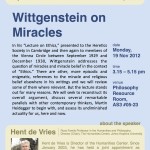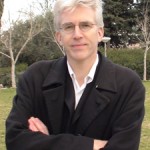One might argue that “traveling”—that is, “making one’s way” (dao 道)—is the governing metaphor of the Analects of Confucius specifically, and even the Chinese philosophical narrative broadly construed. “It is the human being that extends the way…”
This lecture will focus on the dynamics of intergenerational cultural transmission. Culture not only has legs, but indeed is quite literally embodied and reproduced by each succeeding generation. I will use the term xiao 孝—family reverence—to explore cultural transmission within living family lineages, and then the term ru 儒 to pursue an understanding of the changing cultural landscape as it is conserved and reconfigured across the centuries. I will finally appeal to lineages of landscape painting from the Yuan dynasty to the early Qing as a concrete example of both familial and ru transmission.
Lim Chong Yah Professorship Public Lecture / Distinguished Leaders in Asian Studies Public Lecture.
Date: Wednesday, 20 Mar 2013
Time: 6pm – 7.30pm
Venue: Lecture Theatre 12 (Click here to view map)
Speaker: Prof. Roger T. Ames, Lim Chong Yah Professor (2013), NUS; Professor of Philosophy, University of Hawai’i at Manoa
This is a public lecture. All are welcome.
About the Speaker:
 Roger T. Ames is Professor of Philosophy and editor of Philosophy East & West. His recent publications include translations of Chinese classics: Sun-tzu: The Art of Warfare (1993); Sun Pin: The Art of Warfare (1996) and Tracing Dao to its Source (1997) (both with D.C. Lau); the Confucian Analects (1998) and the Classic of Family Reverence: A Philosophical Translation of the Xiaojing (2009) (both with H. Rosemont), Focusing the Familiar: A Translation and Philosophical Interpretation of the Zhongyong, and A Philosophical Translation of the Daodejing: Making This Life Significant (with D.L. Hall) (2001).
Roger T. Ames is Professor of Philosophy and editor of Philosophy East & West. His recent publications include translations of Chinese classics: Sun-tzu: The Art of Warfare (1993); Sun Pin: The Art of Warfare (1996) and Tracing Dao to its Source (1997) (both with D.C. Lau); the Confucian Analects (1998) and the Classic of Family Reverence: A Philosophical Translation of the Xiaojing (2009) (both with H. Rosemont), Focusing the Familiar: A Translation and Philosophical Interpretation of the Zhongyong, and A Philosophical Translation of the Daodejing: Making This Life Significant (with D.L. Hall) (2001).
He has also authored many interpretative studies of Chinese philosophy and culture: Thinking Through Confucius (1987), Anticipating China: Thinking Through the Narratives of Chinese and Western Culture (1995), and Thinking From the Han: Self, Truth, and Transcendence in Chinese and Western Culture (1997) (all with D.L. Hall). Recently he has undertaken several projects that entail the intersection of contemporary issues and cultural understanding. His Democracy of the Dead: Dewey, Confucius, and the Hope for Democracy in China (with D.L. Hall) (1999) is a product of this effort. Almost all of his publications are now available in Chinese translation, including his philosophical translations of Chinese canonical texts. Confucian Role Ethics: A Vocabulary (2011), his most recent monograph that evolved from the endowed Ch’ien Mu lectures at the Chinese University of Hong Kong, is an argument that this tradition has a sui generis vision of the moral life. He has most recently been engaged in compiling the new Blackwell Sourcebook of Chinese Philosophy, and in writing articles promoting a conversation between American pragmatism and Confucianism.






